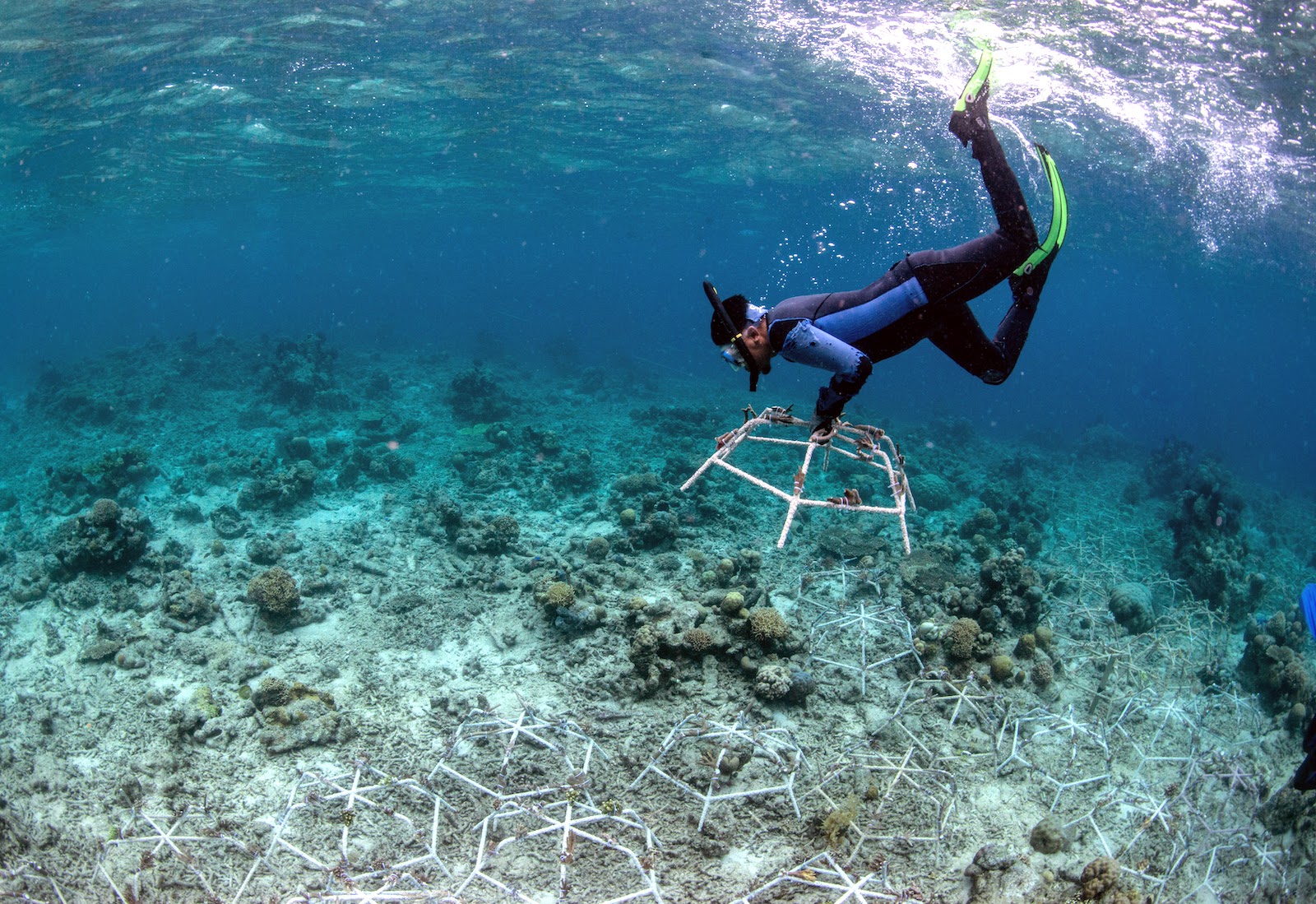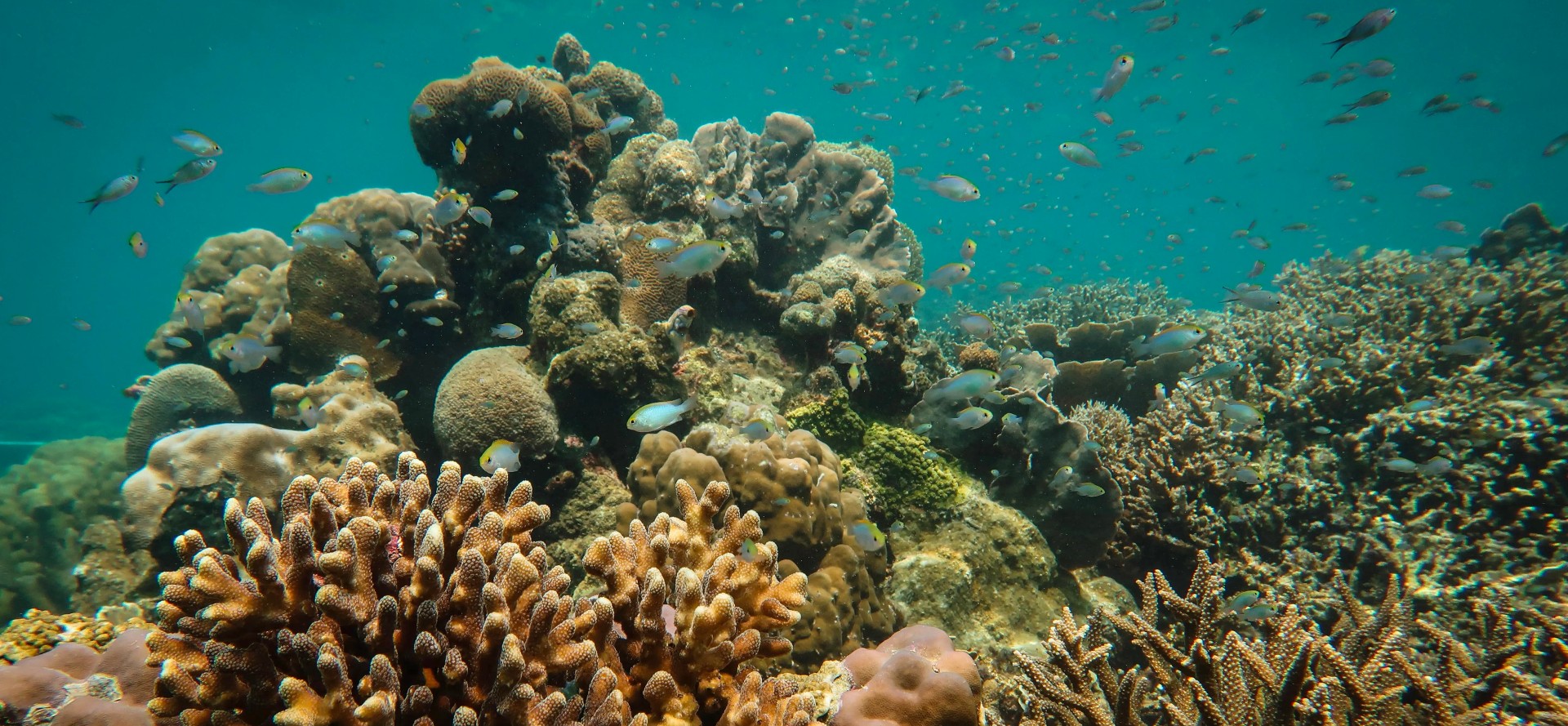This community-based approach to restoration, combined with an ingenious device, has fully revived coral reefs decimated by dynamite fishing in Indonesia.
An extended experiment in coral restoration in the Spermonde Archipelago, Indonesia, has shown that a devastated reef can fully recover within just four years with careful intervention and community support.
The Spermonde Archipelago, located a dozen miles off the coast of South Sulawesi, was once renowned for its vibrant reefs. However, extensive dynamite fishing had turned these reefs into barren landscapes. In 2018, a collaborative effort involving academics, government agencies, nonprofits, and local communities sought to restore the reefs using an innovative approach.

A team of marine biologists and reef ecologists has published the first results of their studies in Current Biology. The findings demonstrate that the method can significantly aid reef recovery in a few years. “We do always refer to corals, in particular in reefs, as these slow-growing ecosystems that take a long time to recover, which they are,” said Rebecca Albright, a coral biologist at the California Academy of Sciences. “So showing that they can regain rapid growth within four years is very encouraging.”
“The 3D structure of the reef is basically the city where these animals live,” said Ines Lange, the study’s lead author. The restored reefs provide essential habitat for marine life and protect coastlines from erosion and storm surges. Unlike other restoration efforts, the Mars program created large-scale, forest-like reefs.
“The Mars project has set the bar really high for how you can do evidence-based reef restoration,” added Lisa Boström-Einarsson, a coral reef ecologist at the University of Exeter.
Restoring the reefs in Sulawesi is particularly critical, because the island sits at the center of the Indonesian archipelago and also lies in one corner of the Coral Triangle. This region, and Indonesia in particular, is home to the largest concentration of reefs and coral habitat in the world.
However, many of these thriving ecosystems were decimated by decades of fishers dropping explosives into the water to concuss fish they could then scoop out of the sea. With loose rubble then left to tumble in the currents, corals had little hope of recovering on their own. Any coral spawns that might settle and grow were liable to be crushed by errant rocks.
To overcome this, the Mars Coral Reef Restoration Program (not a reference to the planet, but rather a nonprofit funded by the Mars corporation known for M&Ms, Twix, and Snickers) brought together restoration experts who developed what they call the reef star: a six-legged steel spider coated in sand, to which coral fragments harvested from nearby healthy reefs or found rolling with the tides are strapped.

Restoration workers, who are often members of local communities, position them across dozens of sites. This effort ultimately provides the protection and stability the transplants need to grow, while also helping to settle the debris created by blast fishing.
Within a year, the coral fragments began forming colonies. By 2023, these fragments had grown into vibrant coral formations, supporting diverse marine life. Researchers used a carbonate budget to measure growth rates, finding that the restored sites matched the growth of healthy, undamaged reefs nearby. Without such help, researchers believe that corals might never have returned to the damaged areas.
The Mars program has adapted its methods for other regions, including the Great Barrier Reef, which faces different challenges such as recurrent bleaching. “We’re not saying we can repair all the coral reefs in the world with this method,” Lange noted. “But that doesn’t mean we shouldn’t do something on the scale that we can.”

Local communities play a significant role in the restoration efforts, providing a sense of ownership and ensuring the reefs’ protection. However, the researchers acknowledge that restoration is only a temporary solution and emphasise the need to address the root causes of climate change.
Reporting from The Ocean Agency, Grist.org, and Ad Auris contributed to this article.
"ExpatGo welcomes and encourages comments, input, and divergent opinions. However, we kindly request that you use suitable language in your comments, and refrain from any sort of personal attack, hate speech, or disparaging rhetoric. Comments not in line with this are subject to removal from the site. "





















